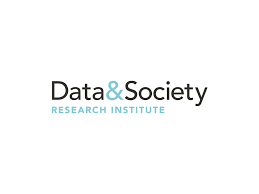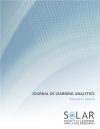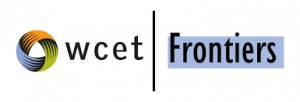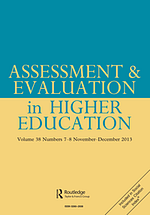“There is a danger in falling into the trap of thinking that with sufficient data, the numbers speak for themselves. In fact, the opposite is true: with larger amounts of data, theory plays an ever-more critical role in analysis” (Wise & Shaffer, 2015).

The first step towards bridging the achievement gap is understanding the data. Learning analytics harnesses data to identify areas needing improvements, and can be especially powerful in helping underserved and underrepresented populations. Learning analytics is crucial to design strategic interventions, which lead to educational gains and changes in educational policy.
The Learning Analytics program’s emphasis on equity is consistent with UW-Madison’s School of Education’s focus on equitable solutions and innovative research. Just as the UW-Madison School of Education is a leader in its field, the Learning Analytics program leads students to be prepared to tackle the achievement gap and bring about resounding change.
Students will experience an emphasis on equity and commitment to bridging the equity gap throughout each course in the curriculum and will work with data and on projects designed to illuminate opportunities for improvement and growth.
The Department of Educational Psychology is proud to offer the Committed Scholars Program (CSP) to further advance the Commitment to Equity initiative. The CSP seeks to address inequities in education by supporting graduate students throughout and after completion of their Learning Analytics master’s program. The CSP will build Scholar-leaders who are committed to working with diverse populations and tackling education achievement gaps.
Click to learn more about the scholarship program, including qualifications, deadlines, and application link
The Relationship between Learning Analytics and Equity
The Learning Analytics program joins a growing focus on how data can improve equity in education. The selection of articles below, curated by EDUCAUSE, examines a range of issues in learning analytics, including ethical challenges, algorithmic biases, connections between data and justice, etc.
Thinking critically about learning analytics, student outcomes, and equity of attainment. This research article addresses the use of analytics to inform effective and efficient use of learning analytics and specifically addresses issues of student equity. In light of recent events surrounding the death of George Floyd and a collective desire to work toward racial justice, this article helps frame a conversation around how higher education can use learning analytics to address educational attainment gaps between different groups of students.
Data & Civil Rights: Education Primer.  This article was a primer for a workshop given in 2014 yet still holds significance today. It discusses broad scope student data analytics – including academic analytics and learning analytics – and its connection to equity and civil rights. There are nine reflection questions posed at the end of the article that were used during the subsequent workshop that may help in thinking through how to address policies and practices employed in higher education may be improved upon to better support student success.
This article was a primer for a workshop given in 2014 yet still holds significance today. It discusses broad scope student data analytics – including academic analytics and learning analytics – and its connection to equity and civil rights. There are nine reflection questions posed at the end of the article that were used during the subsequent workshop that may help in thinking through how to address policies and practices employed in higher education may be improved upon to better support student success.
Ethical Challenges for Learning Analytics. Rebecca Ferguson from The Open University writes a response to Neil Selwyn’s article “What’s the Problem with Learning Analytics?” Ferguson highlights six broad ethical areas pertaining to the use of learning analytics today: duty to act, informed consent, safeguarding, equality and justice, data ownership and protection, privacy and integrity of self. A link to Selwyn’s article is included for those interested in reading more about what he says on each point. As institutions of higher education look at how to support racial justice, clues on how learning analytics can support or hinder that effort may be gleaned from articles like this.
Rebecca Ferguson from The Open University writes a response to Neil Selwyn’s article “What’s the Problem with Learning Analytics?” Ferguson highlights six broad ethical areas pertaining to the use of learning analytics today: duty to act, informed consent, safeguarding, equality and justice, data ownership and protection, privacy and integrity of self. A link to Selwyn’s article is included for those interested in reading more about what he says on each point. As institutions of higher education look at how to support racial justice, clues on how learning analytics can support or hinder that effort may be gleaned from articles like this.
 Algorithms, Diversity, and Privacy: Better Data Practices to Create Greater Student Equity. A short article explaining how bias infiltrates algorithms that are used to make predictions about students and impact adaptive learning experiences and how these algorithms can perpetuate past and current disparities between different groups of students. Proposed solutions for higher ed institutions are stated at the end.
Algorithms, Diversity, and Privacy: Better Data Practices to Create Greater Student Equity. A short article explaining how bias infiltrates algorithms that are used to make predictions about students and impact adaptive learning experiences and how these algorithms can perpetuate past and current disparities between different groups of students. Proposed solutions for higher ed institutions are stated at the end.

